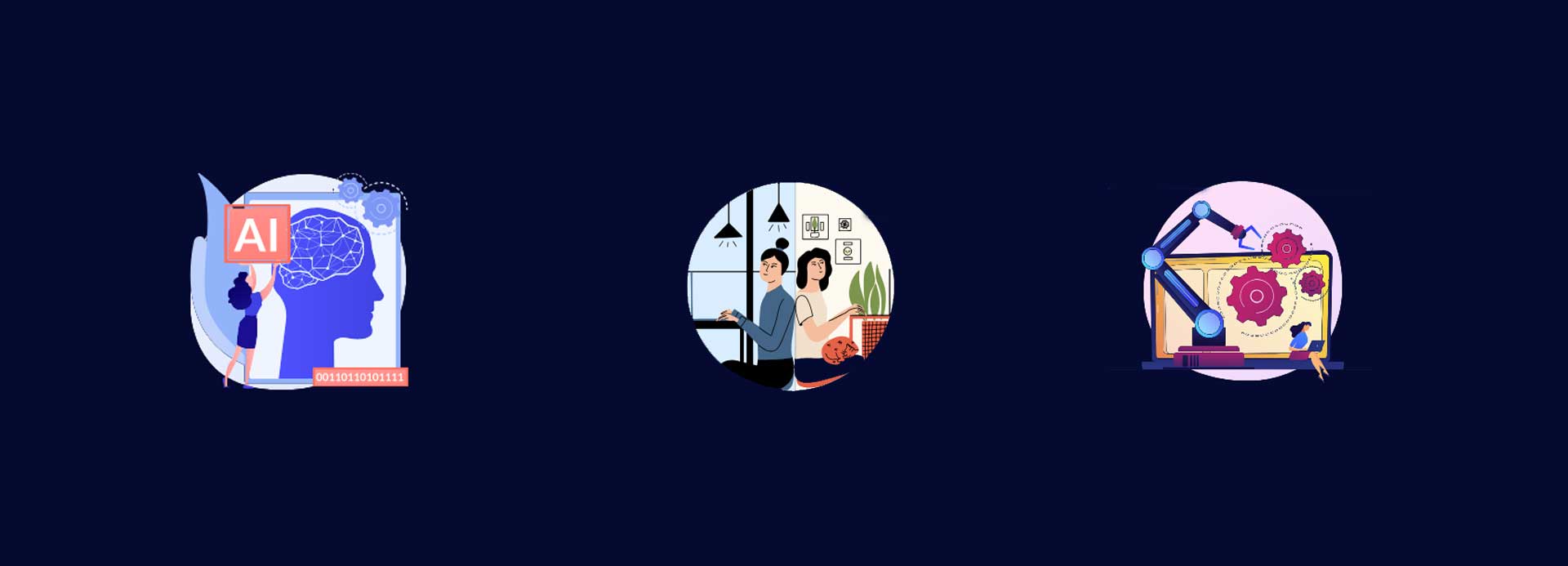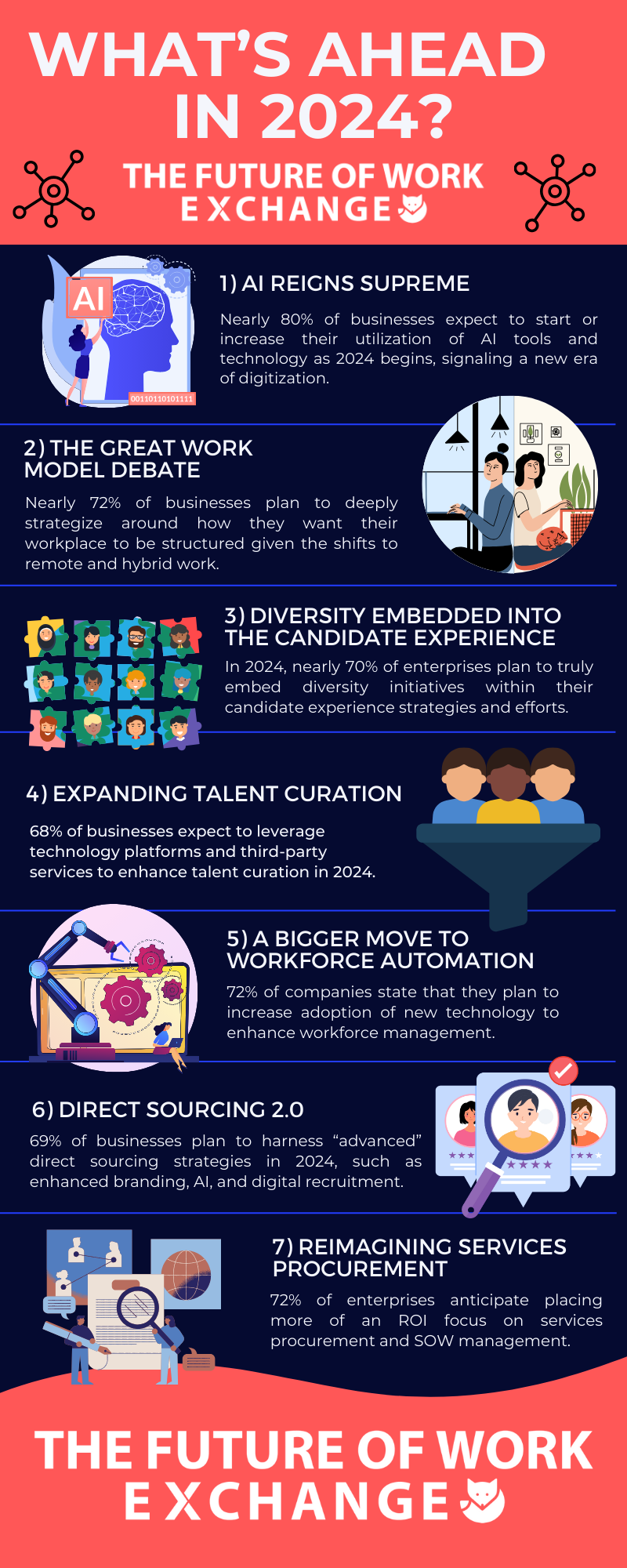
The future of work is a complex and dynamic landscape shaped by technological advancements, societal changes, and economic shifts. Several key trends are influencing how work is organized, performed, and experienced.
It’s never too late to think about what will happen shortly. 2024 has arrived and many of the Future of Work accelerants that have driven the optimization of work and talent continue to transform business operations across the globe.
The future of work is a complex and dynamic landscape shaped by technological advancements, societal changes, and economic shifts. Several key trends are influencing how work is organized, performed, and experienced.
Today, the Future of Work Exchange unveils another exclusive infographic, “What’s Ahead in 2024”? Here are some notable aspects of the future of work:
1. Automation and Artificial Intelligence (AI): The integration of automation, AI, and robotics is transforming industries, automating routine tasks, and changing job requirements. While some jobs may be displaced, new roles are emerging, often requiring advanced digital skills.
2. Remote and Flexible Work: The COVID-19 pandemic accelerated the adoption of remote work. Many organizations are now embracing hybrid or fully remote work models, offering employees greater flexibility. The thing is not new and maybe was practiced in the US for many years more successfully than anywhere else. Specially living in the Middle East this trend has taken beyond COVID-19 to establish well. Technology enables seamless collaboration and communication across distances.
3. Gig Economy: The gig economy, characterized by short-term and freelance work, continues to grow. Platforms connecting workers with tasks or projects provide flexibility for both employers and workers, but they also raise concerns about job security and benefits.
4. Skills Evolution: Rapid technological advancements mean that the demand for specific skills is evolving. Continuous learning and upskilling are becoming crucial for workers to remain relevant in the job market.
5. Human-Machine Collaboration: The future of work involves increased collaboration between humans and machines. It’s no longer a fiction of the Hollywood studios, AI and automation can handle routine tasks, allowing humans to focus on complex problem-solving, creativity, and emotional intelligence.
“Don’t let the noise of others’ opinions drown out your own inner voice.” – Steve Jobs
6. Well-being and Mental Health: Organizations are placing a greater emphasis on employee well-being and mental health. Work-life balance, stress management, and supportive workplace cultures are seen as essential for employee satisfaction and productivity. We looked around in the market and found many offerings, one of them is the company RB4 Lifestyle who offers a new approach for organizations when it comes to health and success formulas.
7. Diversity, Equity, and Inclusion (DEI): There is a growing recognition of the importance of diversity, equity, and inclusion in the workplace. Companies are working to create inclusive environments that value diverse perspectives and backgrounds.
8. Environmental Sustainability: Environmental concerns are influencing the future of work, with a focus on sustainable practices, remote work reducing commuting, and companies adopting eco-friendly policies.
9. Globalization: Advances in technology and communication facilitate global collaboration. Remote work allows companies to tap into talent pools worldwide, and businesses are adapting to operate in a more interconnected and globalized economy.
10. Adaptive Leadership: Leadership styles are evolving to adapt to the changing nature of work. Leaders need to be agile, empathetic, and capable of navigating uncertainty and change.
The future of work is likely to be characterized by a blend of technological innovation, evolving organizational structures, and a heightened focus on employee well-being. It presents both challenges and opportunities, requiring individuals and organizations to be adaptable and forward-thinking.


![YouTube Statistics 2024 [Infographic] hero-image-YouTube-User-Statistics-2024](https://www.skillzme.com/wp-content/uploads/2024/11/hero-image-YouTube-User-Statistics-2024-200x200.jpg)
![Top Software Development Trends for 2024 [Infographic] software development trends of 2024](https://www.skillzme.com/wp-content/uploads/2024/11/hero-image-software-development-trends-2024-200x200.jpg)
![Formula 1’s Highest-Paid Drivers 2024 [Infographic] hero-image-Formula1-Highest-Paid-Drivers-2024](https://www.skillzme.com/wp-content/uploads/2024/12/hero-image-Formula1-Highest-Paid-Drivers-2024-200x200.jpg)


Recent Comments